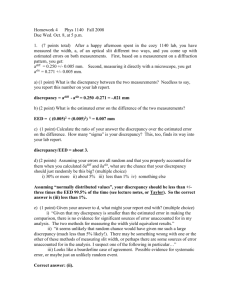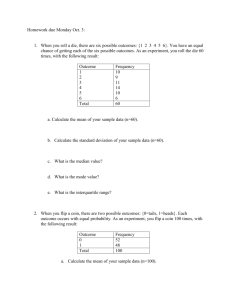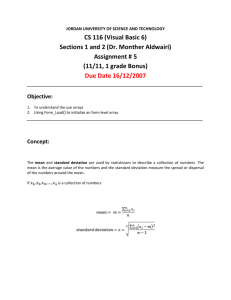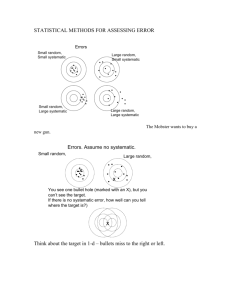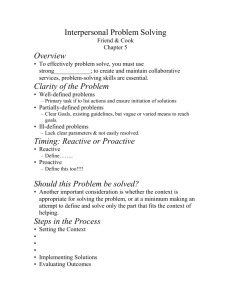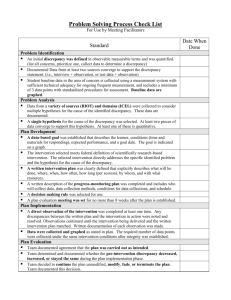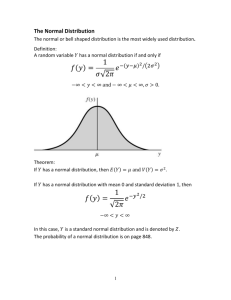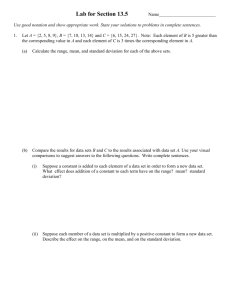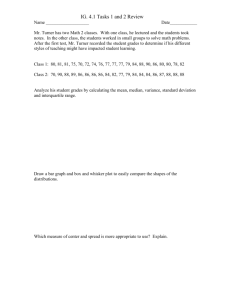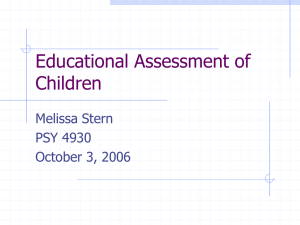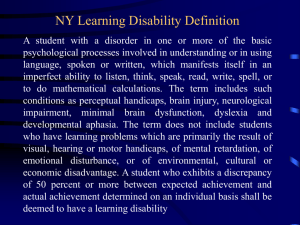Homework Set #4
advertisement
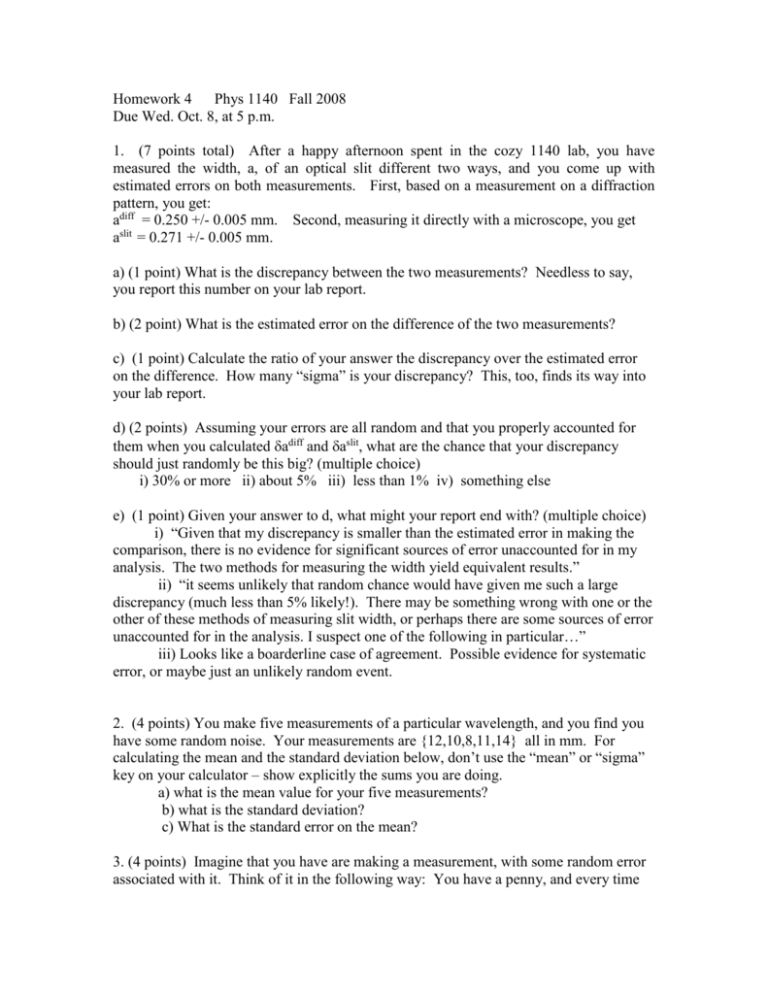
Homework 4 Phys 1140 Fall 2008
Due Wed. Oct. 8, at 5 p.m.
1. (7 points total) After a happy afternoon spent in the cozy 1140 lab, you have
measured the width, a, of an optical slit different two ways, and you come up with
estimated errors on both measurements. First, based on a measurement on a diffraction
pattern, you get:
adiff = 0.250 +/- 0.005 mm. Second, measuring it directly with a microscope, you get
aslit = 0.271 +/- 0.005 mm.
a) (1 point) What is the discrepancy between the two measurements? Needless to say,
you report this number on your lab report.
b) (2 point) What is the estimated error on the difference of the two measurements?
c) (1 point) Calculate the ratio of your answer the discrepancy over the estimated error
on the difference. How many “sigma” is your discrepancy? This, too, finds its way into
your lab report.
d) (2 points) Assuming your errors are all random and that you properly accounted for
them when you calculated adiff and aslit, what are the chance that your discrepancy
should just randomly be this big? (multiple choice)
i) 30% or more ii) about 5% iii) less than 1% iv) something else
e) (1 point) Given your answer to d, what might your report end with? (multiple choice)
i) “Given that my discrepancy is smaller than the estimated error in making the
comparison, there is no evidence for significant sources of error unaccounted for in my
analysis. The two methods for measuring the width yield equivalent results.”
ii) “it seems unlikely that random chance would have given me such a large
discrepancy (much less than 5% likely!). There may be something wrong with one or the
other of these methods of measuring slit width, or perhaps there are some sources of error
unaccounted for in the analysis. I suspect one of the following in particular…”
iii) Looks like a boarderline case of agreement. Possible evidence for systematic
error, or maybe just an unlikely random event.
2. (4 points) You make five measurements of a particular wavelength, and you find you
have some random noise. Your measurements are {12,10,8,11,14} all in mm. For
calculating the mean and the standard deviation below, don’t use the “mean” or “sigma”
key on your calculator – show explicitly the sums you are doing.
a) what is the mean value for your five measurements?
b) what is the standard deviation?
c) What is the standard error on the mean?
3. (4 points) Imagine that you have are making a measurement, with some random error
associated with it. Think of it in the following way: You have a penny, and every time
you flip it, you get either heads or tails. If it lands “heads”, that counts as measuring the
value “9. If it lands tails, that counts as measuring the value “11”. On average, you get
heads just as often as you get tails, but any given toss is random. Don’t actually do the
experiment, but see if you can figure out what the answer will very likely be. Suppose
you flip the coin 10,000 times. You have made 10,000 measurements. Some of the
measurements came out as “9”, and some came out as “11”. Don’t actually do all 10,000
measurements!
a) Suppose you were to calculate the mean of these 10,000 measured values. What do
you guess it would be, more or less?
b) Again, don’t actually flip a coin 10,000 times, but given your estimate of the mean,
and given that each measurement is either 9 or 11, what do you think is the standard
deviation for the set of measurements? (hint – take any one of the 10,000 measured
values. How far away is it from the average value?)
4. (4 points) A quantity is measured 100 times, and, after calculating the mean, the
standard deviation, and the standard error on the mean, and assuming the errors on the
individual measurements are all random, you come to the conclusion that your best value,
and standard error on the mean, are
X = 15.0 +/- .3
This is fine, but you’d really like to have a final accuracy of 0.1 cm. So you take more
measurements. Assuming that in the second bunch of measurements, any given
measurement has about as much random error as any given measurement in your original
100 measurements, how many measurements should you make, in total, so that the
standard error on the average of all your measurements is 0.1 cm?
5. (5 points) I measure a quantity many thousands of times, and I find that the average is
about 90.7 m/s, and that the standard deviation on an individual measurement is 2 m/s.
Now, I take an additional 20 measurements, and take the average just of those 20
measurements. What is the probability that I will find that that average is either greater
than 91.6 m/s, or less than 89.8 m/s?
